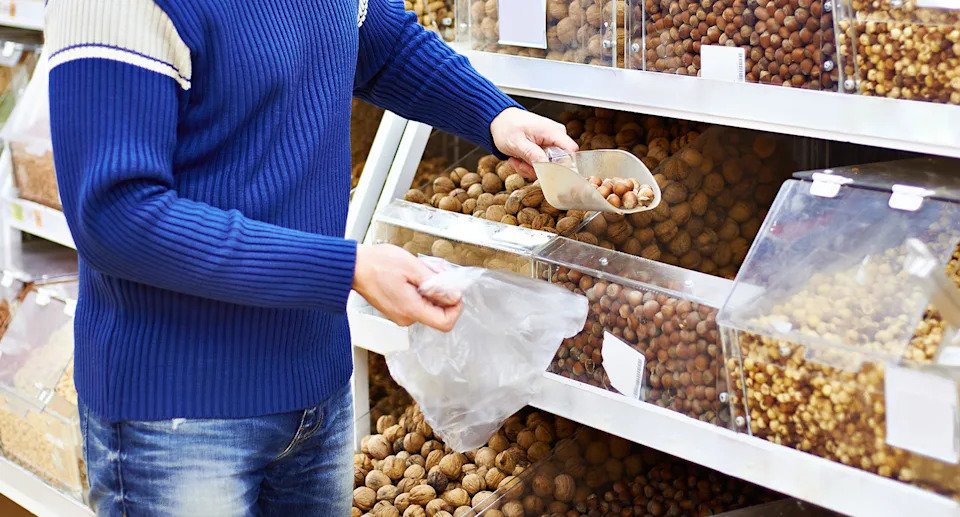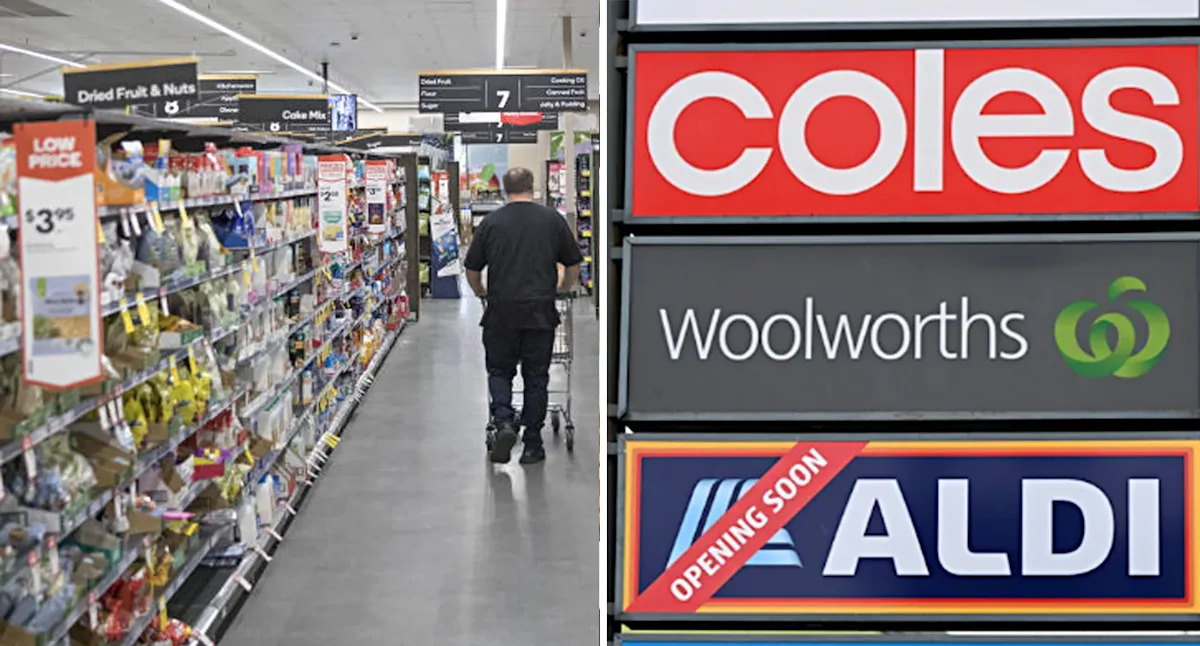Millions of Aussie shoppers may notice a small but impactful change while wandering the aisles of their local supermarket as Woolworths and Coles adhere to one state’s continued crackdown on plastic waste.
The Western Australian government has expanded restrictions on non-compostable produce bags after initially banning their use for loose fresh fruit and vegetables in October last year. As of this month, the flimsy items, otherwise known as barrier bags, can also no longer be used for nuts and confectionery, with all major supermarkets, businesses, manufacturers, retailers and distributors forced to comply.
Speaking to Yahoo News, Woolworths confirmed it began offering compostable bags to customers in all of its Western Australian stores from October 1, “in line with the state government’s new requirements”.
“This is a great development in broader efforts to reduce single use bags in our fruit and veg departments, and follows a similar move in South Australia in 2022,” the spokesperson said.
Coles has also made the switch to an environmentally friendly alternative, however, it is understood the new restrictions won’t impact ALDI as its produce bags already comply with new compostability design standards.
Authorities aim to reduce amount of plastic bags going to landfill
Authorities in WA hope the latest move will further reduce the amount of plastic ending up in landfills. Before restrictions were introduced last year, residents used 115 million produce bags annually.
There are plans to extend the ban next October to include plastic produce bags used for loose meat, seafood and dairy products.
The move aims to reduce the quantity of litter in the state, as well as the threat to wildlife, while also providing compostable liner bags for Food Organics and Garden Organics (FOGO) bins.
“Western Australians have shown strong support for reducing plastic waste and this next phase of the barrier bags ban is another important step forward,” WA Environment Minister Matthew Swinbourn said. “Compostable barrier bags that meet a clear design standard help households and businesses reduce waste going to landfill.
“The community has successfully moved to reusable shopping bags, and I’m encouraging everyone to continue embracing reusable alternatives wherever possible.”

Nuts and confectionery will now need to be bagged in compostable bags. Source: Getty
Obstacles to making compostable plastic bags available nationwide
While WA is making big moves, there are doubts about the possibility of rolling out the compostable produce bags nationally due to delays in the take-up of FOGO services by some councils.
The City of Swan, in Perth’s northeast, paused its FOGO rollout in April after negative feedback from its residents. The Shire of Capel, between Bunbury and Busselton, is also exploring alternatives to a FOGO system, alongside neighbouring councils, after the closure of the regional processing facility. Across the country, Lockyer Valley Regional Council in Queensland stopped its FOGO service in July after trialling the bins since 2021.
However, New South Wales has mandated that all councils must provide a FOGO service by 2030, and uptake in South Australia has been similarly positive towards FOGO after it became the first state to roll out compostable fruit and vegetable bags in 2022. Yahoo News understands 70 tonnes of plastic waste have been diverted from landfill each year in SA since Woolworths replaced its produce bags to align with the state government restrictions.
The new produce bags in SA and WA can largely be disposed of in FOGO bins; however, not all councils recommend it. Some councils are concerned that the compostable bags pose a contamination risk if they are not fully broken down during the processing of waste. They are also difficult to remove by hand at landfills, which may affect the quality of compost.
Do you have a story tip? Email: newsroomau@yahoonews.com.
You can also follow us on Facebook, Instagram, TikTok, Twitter and YouTube.


